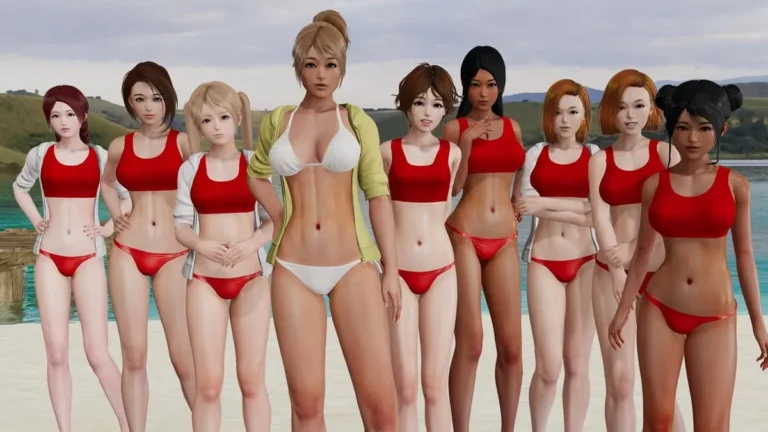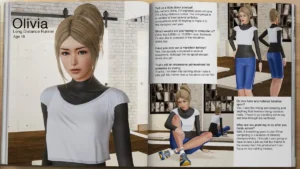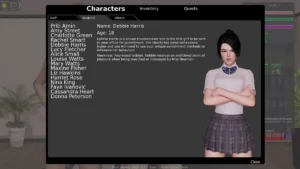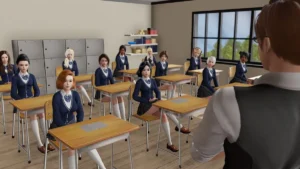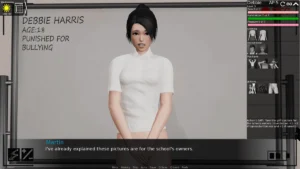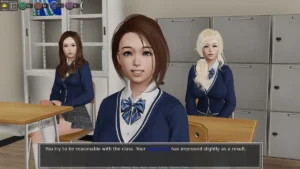
The Headmaster
Play The Headmaster
The Headmaster review
Master the mechanics, choices, and consequences in this complex adult simulation experience
The Headmaster stands as a unique entry in the adult gaming landscape, blending visual novel storytelling with life simulation and strategic management elements. This complex title challenges players to navigate a morally intricate world where every decision carries weight and consequence. Whether you’re new to the experience or looking to deepen your understanding of its systems, this guide explores the core mechanics, gameplay features, and strategic approaches that define this thought-provoking interactive experience. Understanding how the game’s choice system works, how character relationships develop, and how your decisions shape the academy’s future is essential for meaningful engagement with the narrative.
Understanding The Headmaster’s Core Gameplay Systems
How the Choice System Shapes Your Story
Let me tell you about the first time I truly understood the power of The Headmaster gameplay mechanics. I was dealing with a student who had clearly broken a major academy rule. My initial instinct was to come down hard, to make an example of them. But I hesitated. A small dialogue option, one I’d almost overlooked, suggested a more compassionate approach. I took it. The ripple effect of that single decision altered that student’s entire story arc and changed how other characters perceived me for the rest of that playthrough. 🤯 That’s the heart of this experience.
This game is built on a choice system adult game foundation where every decision, no matter how small it seems, carries weight. 🎮 You’re not just picking from a list of pre-determined outcomes; you’re actively writing your own version of the Headmaster’s story. The narrative branches in ways that feel organic and deeply personal. Want to be a stern, uncompromising leader? Your choices will pave that path. Prefer a more reform-focused, nurturing approach? The game will respond in kind. This is a true moral choices consequences game, where your personal ethics are constantly put to the test.
The magic lies in the invisible web of variables the game tracks. Your reputation, the trust of your staff, the fear or respect of the students—it’s all fluid. A harsh punishment might boost short-term order but sow long-term resentment. A lenient decision could be seen as weakness, encouraging further mischief. 🧩 There is no single “right” way to play, only the consequences of the path you choose. The The Headmaster quest system is seamlessly woven into this, where missions aren’t just simple fetch tasks; they are complex moral dilemmas that advance the plot and develop character relationships based on your chosen solutions.
Pro Tip: Don’t reload a save every time you get an outcome you don’t like. Some of the most interesting story developments come from dealing with the unintended consequences of your decisions. It makes the story yours.
Managing Resources and Character Relationships
If the choice system is the game’s brain, then resource and relationship management is its beating heart. 🫀 You can’t just bark orders and expect results; you need social capital, and that comes in several forms. Character relationship management is arguably the most critical skill you’ll develop. Every interaction with a staff member or student is an opportunity to build a connection—or burn a bridge.
I learned this the hard way. In one playthrough, I focused solely on discipline, ignoring the personal lives of my staff. I had high influence points, but my relationships were in the gutter. When a critical vote came up that required their support, I was shocked to find myself completely isolated. They didn’t care about my authority; they cared that I had never shown I cared about them. 😥 It was a brutal but valuable lesson.
Here’s a breakdown of what you’re managing:
- Influence Points: Your currency for enacting major policy changes, overriding objections, and bending the school’s rules to your will. Think of it as your political clout.
- Relationships: These are individual meters for every key character. High relationships unlock unique quests, provide you with crucial information, and give you allies when you need them most.
- Reputation: This is the general student body and staff’s perception of you. A high reputation makes daily management easier, while a low one creates constant friction and challenges.
The The Headmaster quest system is your primary tool for managing these elements. Completing a teacher’s personal quest might not give you a tangible item, but the relationship boost and trust you earn are far more valuable. Similarly, helping a student through a personal crisis can transform them from a troublemaker into one of your most loyal supporters. 🤝 It’s a constant balancing act between being an authority figure and a human being.
The Discipline and Influence Mechanics Explained
Now, let’s get into the nitty-gritty of power: the influence points discipline system. This isn’t a simple “good cop/bad cop” slider. It’s a sophisticated simulation of authority and control. On one hand, you have Discipline Points, which represent the immediate, tangible power you wield through rules and punishments. On the other, you have Influence, which is the softer, more persuasive power you gain through respect, relationships, and clever maneuvering.
So, how to increase discipline points? It’s straightforward, but comes with trade-offs:
* Issuing harsh punishments 🚫
* Consistently enforcing strict rules
* Choosing dialogue options that emphasize authority and order
However, relying solely on discipline breeds fear and resentment. This is where the game’s brilliant safe word mechanic comes into play. It’s a built-in check and balance that prevents scenarios from escalating beyond a participant’s comfort zone, ensuring the choice system adult game remains consensual and narrative-driven, even at its most intense. It’s a crucial feature that respects both the characters and the player.
Building Influence is a subtler art. You gain it by:
* Successfully resolving complex situations diplomatically ✨
* Building strong relationships with key power brokers (like the board members or senior staff).
* Making decisions that benefit the academy as a whole, even if they aren’t the most disciplinarian.
A high Influence score allows you to bypass resistance and implement your vision with less friction. The most effective Headmasters—the ones who truly leave their mark—learn to blend both Discipline and Influence, using each tool at the right moment. The following table shows how a single scenario can play out based on your primary approach:
| Scenario: A Student is Caught Cheating | Discipline-Focused Choice | Influence-Focused Choice | Balanced Approach |
|---|---|---|---|
| Action Taken | Immediate expulsion to set an example | Private meeting to understand the cause; assign extra tutoring | Public probation, combined with mandatory academic support |
| Discipline Points | Large Increase | Slight Decrease | Moderate Increase |
| Influence Points | Decrease | Moderate Increase | Slight Increase |
| Relationship with Student | Permanently destroyed | Greatly improved | Neutral/Slightly improved |
| Relationship with Staff | Mixed (some respect the firmness, others see it as cruel) | Improved (seen as fair and compassionate) | Generally positive (seen as firm but fair) |
As you can see, your strategy in The Headmaster gameplay mechanics directly shapes your environment. There’s no single perfect answer, only the outcome you are willing to live with and build upon.
Frequently Asked Questions
How does the safe word mechanic actually work in gameplay?
The safe word is a narrative tool integrated into the game’s consent framework. 🛡️ During certain intense role-play scenarios, characters have the agency to use it. When invoked, it immediately stops the current scene and shifts the narrative, forcing you, as Headmaster, to deal with the consequences of having pushed too far. It’s a brilliant way the game reinforces that your authority has limits and that relationships are a two-way street.
What happens if a student’s fear greatly exceeds their submission?
This is a volatile state! 😰 A student with high fear but low submission isn’t cowed; they’re terrified and desperate. They are far more likely to engage in extreme, unpredictable behavior—like spreading malicious rumors, attempting to run away, or even trying to undermine your authority in a dangerous way. They see you as a tyrant, not a leader, and will act accordingly. Managing this balance is key to maintaining a stable academy.
Is it possible to recover from a severely damaged reputation?
Yes, but it requires patience and a strategic shift. 🧑⚕️ You can’t bully your way back to a good reputation. You need to focus entirely on the influence points discipline system‘s “Influence” side. Publicly reverse an unpopular policy, go out of your way to help students and staff with their personal quests, and make a series of compassionate choices. It’s a slow grind, but seeing the community’s trust slowly return is one of the most rewarding experiences in the game.
The Headmaster offers a remarkably layered experience that extends far beyond surface-level gameplay. Its intricate systems for managing relationships, making consequential choices, and navigating a morally complex world create a narrative experience where your decisions genuinely matter. Whether you approach the role as a reformer seeking to help students, a strategic controller managing the academy’s operations, or explore the darker possibilities the game presents, each playthrough reveals new content and alternative paths. The game’s strength lies in how it respects player agency while maintaining narrative coherence—your choices don’t just change dialogue, they fundamentally alter character relationships, unlock different quests, and lead to entirely different endings. Understanding these systems transforms the experience from a linear story into a dynamic, replayable narrative where experimentation and strategic thinking are rewarded. As you continue your journey through the academy, remember that every interaction, every decision, and every consequence shapes not just your story, but the world around you.
